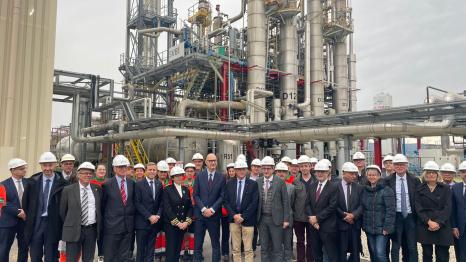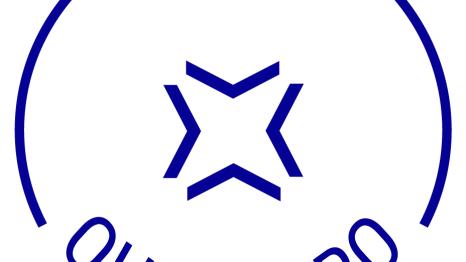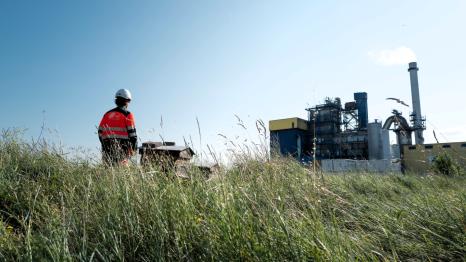R-PAS heating network: when industry decarbonizes Strasbourg
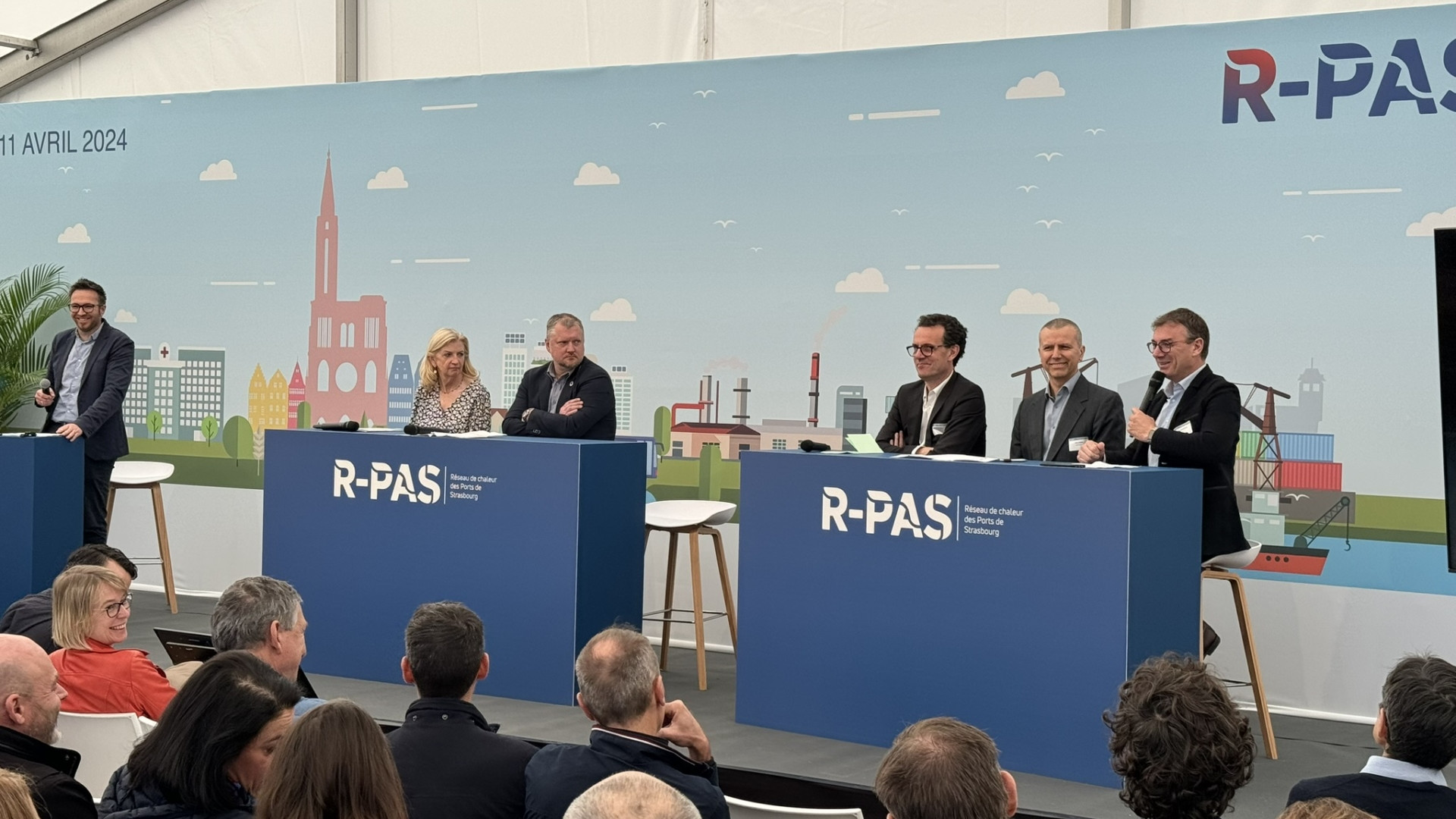
Since 2021, the R-PAS heating network at the Port of Strasbourg has been recovering waste heat from the Blue Paper site. Thanks to the additional resource supplied by the industrial company Trédi, the network will pass the 150 gigawatt-hour mark in recovered energy by 2024, supplying the equivalent of 30,000 homes, including the Coop district, the Rhéna clinic, the headquarters of the Ports de Strasbourg, Malteries Soufflet and the Port du Rhin school. Strongly encouraged by Ademe, this decarbonized energy is now at the heart of the Eurometropole's decarbonization strategy. On Thursday April 11, two round-table discussions involving experts, industrialists and Strasbourg's elected representatives took stock of the project and its prospects, in front of over a hundred guests.
Recovering process waste heat on an industrial site gives it a second life, during which it can be used as a substitute for fossil fuels to power other industrial processes, or even to heat several thousand homes via district heating networks. In other words, recovering heat that was previously lost to the atmosphere means transforming a loss into an economic gain... and above all, an environmental gain!
According to the French Agency for Energy Transition (ADEME), the recovery of so-called "waste heat" represents a major source of carbon-free energy for local and regional authorities. The resource available in France today is estimated at 109 terrawatt hours/year, i.e. almost a third of the decarbonized heat requirement projected for 2030, according to a recent study carried out by the Syndicat des énergies renouvelables (SER) and specialized associations AFPG, CIBE, FEDENE, UNICLIMA, with ADEME.
Industrial waste heat, an energy opportunity for Strasbourg
Sharing this analysis, the Port Autonome de Strasbourg has decided to integrate the valorization of waste heat into its industrial ecology approach (CLES). Initiated in 2013 by the GUP (Groupement des Usagers des Ports de Strasbourg), the CLES approach is led by Initiatives Durables and supported by the Eurométropole de Strasbourg, the Ports de Strasbourg, ADEME and the Région Grand Est as part of the Climaxion program. A specialist in low-carbon heating networks, energy provider R-CUA approached the Ports of Strasbourg in 2015 to carry out an in-depth study of the thermal potential of industrial plants located in the port area: this field survey enabled the recoverable resource to be estimated at over 400 GWh/year, which could eventually cover the heating needs of up to 80,000 homes.
Since then, the Ports of Strasbourg's desire was to create synergies to valorize this surplus heat between industrialists by exporting it to nearby neighborhoods, via new or existing urban heating networks - and thus contribute to the decarbonization of the territory. R-PAS, Strasbourg's low-carbon heating network, was born of this desire, and work began on it in 2020. in the first few years of the project, 11 km of heating network were deployed, initially to connect the Blue Paper paper mill site, then in 2023 the site of Trédi (Groupe Séché Environnement), a specialist in the thermal treatment of hazardous waste. By 2024, these two sites will be injecting up to 150 GWh of decarbonated heat into the network - the equivalent of the consumption of 30,000 homes.
An investment of 40 million euros
The total amount of investments made and programmed as part of the R-PAS project amounts to 40 million euros. Supported by the Ademe's Fonds Chaleur (Heat Fund) to the tune of 6 million euros, the R-PAS network is a major link in the energy master plan of the City and Eurometropolis of Strasbourg, serving the 100% carbon-free energy target for 2050. The connection of a major new source of waste heat is scheduled for the end of 2024: the Strasbourg - La Wantzenau wastewater treatment plant, which will deliver an additional 20 GWh of heat recovered from the thermal treatment of sewage sludge. Ultimately, when the R-PAS project has reached its optimum capacity, it will offset up to 90,000 tonnes/year of CO2 emissions linked to industrial or tertiary uses, as well as residential heating.
Waste heat, an effective anti-crisis mechanism
The example of Clinique Rhéna, the first tertiary site to be connected to the R-PAS heating network from June 2021, illustrates the economic benefit of replacing fossil fuels with renewable heat: the hospital complex did not have to suffer from rising gas prices in subsequent years. Similarly, all the industrial and tertiary sites, as well as condominiums and social landlords, that will benefit from this supply of recovered heat over the next few years will be able to count on energy that is not only more responsible, but also on an energy bill that is less exposed to the volatility of energy market prices.
Two round tables to discuss the role of waste heat in the city of tomorrow
Gathered at the Blue Paper site for this meeting, which was intended as an initial progress report and projection into the future, the players and stakeholders in the R-PAS project were able to discuss the challenges and prospects of recovered heat on a local scale. The two round tables highlighted the opportunities offered by this virtuous energy, both in terms of integrating industrial sites into the urban energy equation, and in terms of the prospects it offers industrial sites for actively contributing to the decarbonization of the economy, while sustainably strengthening their competitiveness and energy resilience.
The hundred or so guests in attendance were treated to an hour of exchanges and feedback, moderated by Guillaume Kaufmann, Director of Initiatives Durables. The first round table, entitled "Industry, a sustainable asset for the city", featured Jeanne Barseghian, Mayor of Strasbourg, Pia Imbs, President of the Eurométropole de Strasbourg, Anne-Marie Jean, President of the Port Autonome de Strasbourg and Antoine Dubois, President of R-GDS. The second topic concluded with a look at the technical and industrial challenges of heat recovery, with contributions from Magali Debatte, Regional Director Grand-Est of Banque des Territoires, Christophe Reif, Deputy Regional Director of ADEME, Hervé Lamorlette, Director of R-CUA, François Bru, Director of Blue Paper and Gilles Assens, Director of the Trédi Strasbourg site.
The morning ended on a creative high point with the unveiling of a mural by Pisco Logik, whose label has long been familiar to street-art enthusiasts in Strasbourg and beyond...
